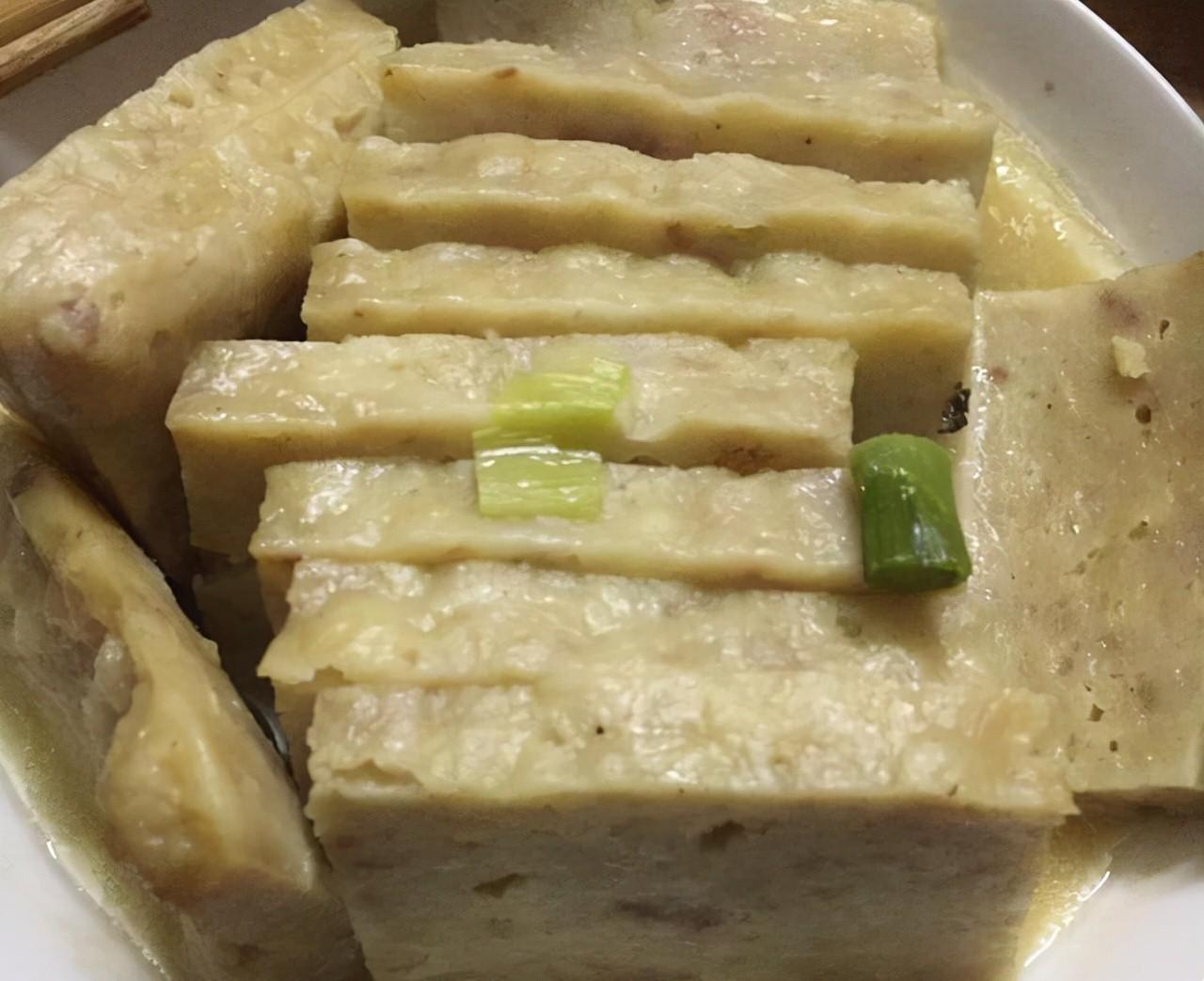In the whole country, there is a saying that there is no pi and no town, and in Huangpi there is no meat cake that does not become a seat, and one of the three fresh foods in Huangpi is the meat cake.

There are many theories about the origin of meat cakes, some from the King of Chu, some from Li Zicheng during the Chongzhen period of the Ming Dynasty, some saying that they were invented by the Luohan people in 1941, in short, meat cakes and Huangpi are tied together, and which one vote is about to become the Huangpi dialect of Mandarin.
In my childhood memory, the meat cake is to add fish meat, so that it tastes more delicious and is more powerful when clipped to chopsticks. I don't feel like fish when I eat it now. I don't know if I didn't eat the authentic, that is, in Wuhan, the famous Yang Yongxing store that queued up to buy did not eat the feeling of fish in the meat cake.
There are also three places in Hubei where the dishes are similar to Huangpi meat cakes, and even the legends are similar. That is Jingzhou's fish cake, Zhongxiang's dragon dish.
Speaking of the origin of meat cakes, there is also an interesting story. Legend has it that the King of Chu was fish-loving, but he was often annoyed by the stabs in his throat, and many cooks became ghosts under the knife. Later, when cutting the fish, a chef accidentally found that the fish bones were easily separated from the meat, so he chopped the separated fish and pork ginseng and the condiments into a puree and steamed into a block. The King of Chu was surprised. Meat cake has since come out, and its reputation has been greatly enhanced. Since then, chefs who have returned to their hometowns have passed on their skills to the people.
That's why my original meat cake smelled like fish!
Let's take a look at Jingzhou fish cake again.
Legend has it that the history of fish cake is even older than this Jingzhou City, and it is said that in ancient times, Emperor Shun, with his two wives, Ying and Emperor E, passed through the Jiangling area when they toured the south, which happened to be the location of Jingzhou City. Probably due to the weather, Emperor Eun's throat was swollen and sore, and he was very tired, and wanted to eat fish meat, but he didn't like the spines in the fish. So he called the local fishermen (Jingzhou is the land of fish and rice), and after the fishermen caught the fish, Nüying listened to the fishermen's guidance while making a fish cake without thorns for Emperor E according to her cooking skills. After Emperor E ate it, his body quickly recovered, and Emperor Shun was very happy when he saw it. As a leader at that time, Emperor Shun greatly praised and gave the fisherman a lot of remuneration, and fish cakes began to be widely spread from this area.
Is the legend also similar, fish cake is therefore widely spread in the Jingchu area, the Spring and Autumn Warring States began to become the first dish of the Chu palace court, until the Qing Dynasty, it is still a court dish, it is said that Qianlong tasted the Jingsha fish cake and blurted out: eat fish do not see fish, but people lily cake.
Dragon dish is more interesting, imperial dish, in fact, there should be an influence of fish cake and meat cake! Panlong cuisine is the Zhongxiang area people every New Year's Festival, wedding and funeral can not be separated from the traditional famous dish, where the feast must have "dragon seat", Panlong cuisine was born in the Ming Wuzong years, named after Jiajing ascended the throne, so far has a history of about 500 years, its main raw materials are eggs, pork, fish, onions, ginger, etc., the characteristics of the dish is bright color, fat but not greasy, meat smooth and oily, long flavor.
Here you don't see the shadow of fish and pork. The Qing Dynasty poet Fan Guokai once described Zhongxiang's "Dragon Dish" in the "Twelve Poems of Bamboo Branches in Yingzhong": the taste of mountains and treasures and the sea does not need to be offered, and the rich water spring wine has a strong taste. The full seat of guests called for food and dressed up as a roll-cut dragon.
These three dishes, are the shoulder handle of Hubei, are all intangible cultural heritage, are the crystallization of the wisdom of the Chu people, is one of the only manifestations of Chu talent, welcome friends from other places to Come to Hubei, taste three similar Hubei cuisine, there will be different receipts.